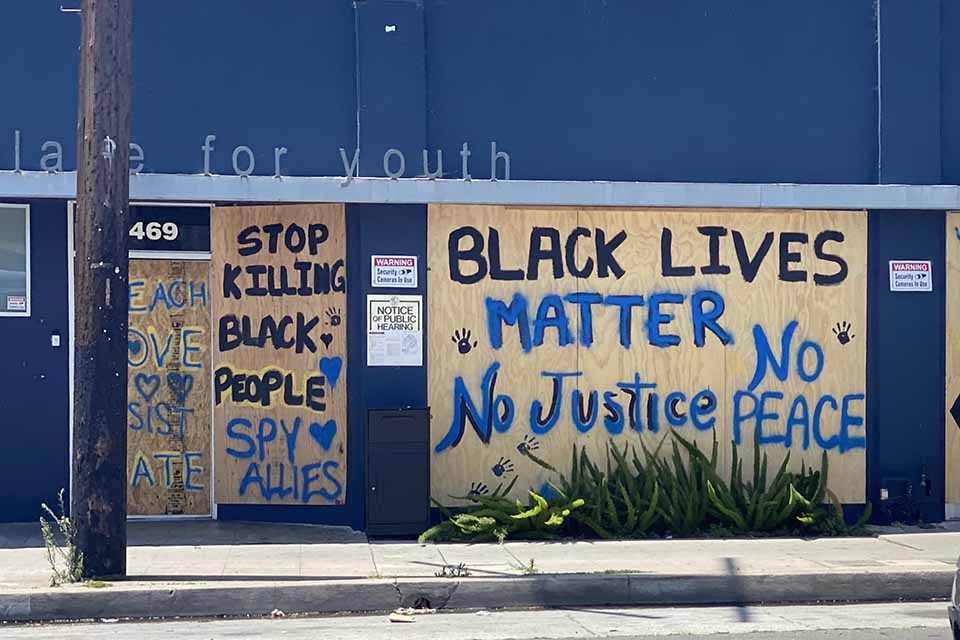When the social uprisings shook the country last summer and reverberated throughout the globe in an astonishingly collapsing wave, we had already been cut a thousand ways, and thousands more were coming our way. Seeping in anger did not do it any longer; nor did immersing oneself into the deepest of griefs, unable to mourn body after black body, unable to forget their names, that kept adding, that keep adding, one after another.
And yet, something was happening, perhaps something that was long overdue; everyone else was now partaking in the anger, everyone seemed to be sharing the griefs. Our wounds grew deep and large, and welcomed those who were outraged on our behalf as well. We had conversations we never thought we would have; we saw the world as what it should always be—a space for us too, where safety is not novelty, where saying our lives mattered would not get us stoned.
And now, over a year later, as we reflect back upon those moments, and the ones that followed, I ask of you only one thing: insist, insist, persist in this wounding, in this grief; do not look away.
With the opening poems of the 2021 series, Ariana Benson resurrects vivid, fleshy worlds, in which Black boys are immersed in fawnhood, leaving their coffin-shaped prints upon the earth, a sort of prelude to the wounding that will be inflicted upon them. Yet the boys are also surrounded by a forest, trees who statue themselves like deer, both as an act of resistance and as an act of witness. And perhaps that’s how Benson’s work is able to unearth the complicity of itself, the complicity of its readers; in “Black Pastoral,” it asks, who among you would interrupt this pastoral, and in “Etymology of Mercy,” it comes back again, insisting on the wounds and the wounding, both a prelude and an afterlude to the Black Voices series. – Mahtem Shiferraw
Los Angeles
